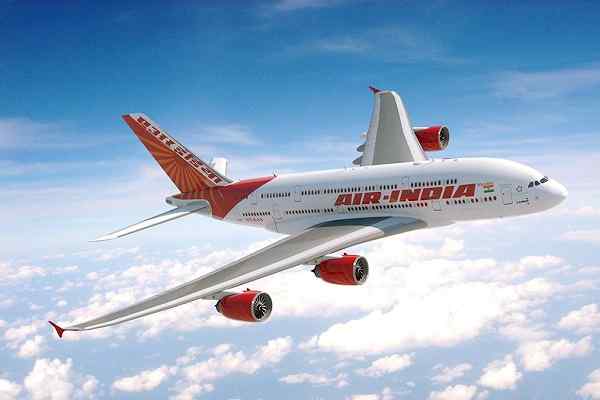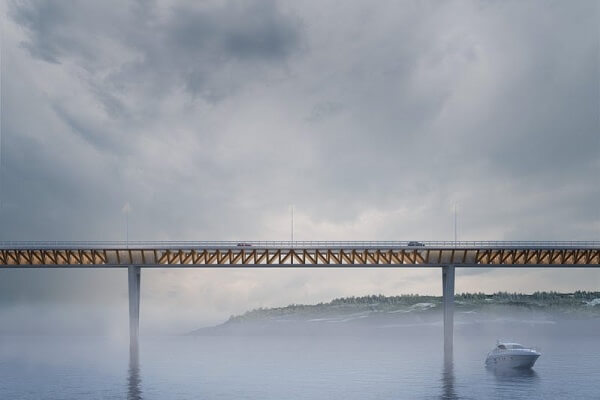 Delhi unveils ambitious Urban Mobility Vision: Luxury Metro Coaches, New Tunnels and Pod Taxi
Delhi unveils ambitious Urban Mobility Vision: Luxury Metro Coaches, New Tunnels and Pod Taxi Qatar approves Saudi Rail Link Agreement, Accelerating Gulf Railway Vision 2030
Qatar approves Saudi Rail Link Agreement, Accelerating Gulf Railway Vision 2030 UP Govt plans to introduce Water Metro services in Ayodhya, Varanasi & Prayagraj
UP Govt plans to introduce Water Metro services in Ayodhya, Varanasi & Prayagraj India’s First Urban Ropeway begins Trial Run in Varanasi, Set to carry 1 Lakh passengers daily
India’s First Urban Ropeway begins Trial Run in Varanasi, Set to carry 1 Lakh passengers daily India and Bhutan to Build First-Ever Rail Link: ₹4,033 Cr Project to Boost Regional Connectivity
India and Bhutan to Build First-Ever Rail Link: ₹4,033 Cr Project to Boost Regional Connectivity Patna to launch Eco-Friendly Water Metro; Trial Run soon between Digha and Kangan Ghats
Patna to launch Eco-Friendly Water Metro; Trial Run soon between Digha and Kangan Ghats Air India Group set to launch Flights Operations from Navi Mumbai International Airport
Air India Group set to launch Flights Operations from Navi Mumbai International Airport Chennai to launch 25-Year Mobility Plan with Unified QR Ticketing and One-App Transit System
Chennai to launch 25-Year Mobility Plan with Unified QR Ticketing and One-App Transit System Kochi Metro bags ₹4.4 crore contract to prepare DPR for Mumbai Water Metro Proejct
Kochi Metro bags ₹4.4 crore contract to prepare DPR for Mumbai Water Metro Proejct Navi Mumbai International Airport set for September launch; IndiGo and Akasa Air to lead Operations
Navi Mumbai International Airport set for September launch; IndiGo and Akasa Air to lead Operations
Unlocking prosperity between India and Myanmar: The Kaladan Multi-Modal Transit Project

In the heart of the Bay of Bengal, a visionary collaboration between India and Myanmar is poised to reshape the economic landscape of the region. The Kaladan Multi-Modal Transit Project stands as a beacon of hope, promising to bridge the gap between India's northeastern states and the bustling seaport of Kolkata, while forging stronger ties between the two nations.
A Path to Prosperity: Project Components
At its core, the Kaladan Multi-Modal Transit Project comprises three pivotal components:
-
Sittwe Port Development: Nestled on the shores of Myanmar's Rakhine State, the deep-water port of Sittwe emerges as the gateway to this ambitious venture. Designed to accommodate cargo shipped from Kolkata, India, Sittwe Port is poised to usher in a new era of maritime connectivity.
-
Kaladan River Transport: The tranquil waters of the Kaladan River, flowing gracefully from Mizoram in India to the bustling port of Sittwe, serve as the lifeline of this transformative project. Through dredging and widening efforts, the Kaladan River will emerge as a bustling artery for inland water transport, facilitating the seamless flow of goods between India and Myanmar.
-
Road Construction: Spanning 109 kilometers of rugged terrain, the construction of a robust road network linking Paletwa in Myanmar to the Indo-Myanmar border in Mizoram represents the final piece of the puzzle. This vital road infrastructure promises to unlock the potential of India's northeastern states, serving as a conduit for economic growth and prosperity.
A Promise of Progress: Significance for India
For India, the Kaladan Multi-Modal Transit Project holds immense promise, offering a multitude of benefits:
-
Enhancing Connectivity: By circumventing the narrow confines of the Siliguri Corridor, the project offers a lifeline to India's northeastern states, providing a much-needed alternative route for the transportation of goods.
-
Reducing Transportation Costs: The multi-modal transport corridor promises to slash transportation costs and time, offering a more efficient and cost-effective mode of transit for goods destined for India's northeastern hinterlands.
-
Boosting Economic Development: With enhanced connectivity and reduced transportation costs, the project is poised to catalyze economic development in India's northeastern states, unlocking their true potential and fostering trade and commerce.
-
Strengthening Bilateral Ties: As a testament to the growing economic and strategic cooperation between India and Myanmar, the project serves as a cornerstone for strengthening bilateral ties and fostering mutual prosperity.
Overcoming Adversity: Progress and Challenges
Despite its lofty ambitions, the Kaladan Multi-Modal Transit Project has encountered its fair share of hurdles along the way:
-
Insurgency and Security Concerns: The project's progress has been hampered by insurgency and security issues in Myanmar's Rakhine State, posing significant challenges to its implementation.
-
Land Acquisition Delays: The acquisition of land for road construction has faced delays due to local opposition and compensation issues, further complicating the project's timeline.
-
Environmental Considerations: Environmental groups have voiced concerns about the project's potential impact on the delicate ecosystem of the Kaladan River and its surrounding areas, necessitating careful mitigation measures.
A Vision for the Future: Prospects and Beyond
Despite the challenges, the Kaladan Multi-Modal Transit Project is on the cusp of realization. Once operational, it holds the key to unlocking a new era of prosperity for India's northeastern states and bolstering India's strategic presence in the Bay of Bengal and the broader Indo-Pacific region.
As the wheels of progress continue to turn, the Kaladan Multi-Modal Transit Project stands as a testament to the power of collaboration and vision. In its completion lies the promise of a brighter, more connected future for all those touched by its transformative reach.







